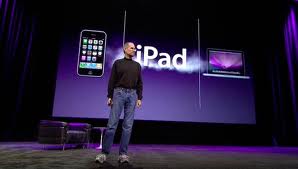What has the name ‘Starbucks’ got to do with coffee?
Apart from now being the name of the world’s largest coffee chain, it has absolutely nothing to do with the dark, bitter brew.
The company was named after a minor character in Herman Melville’s book ‘Moby Dick’. As anyone who has read the book can testify, Starbuck drinks not a drop of coffee. According to the Starbucks website the founders considered naming it after Captain Ahab’s boat, the Pequod, but minds were changed when a friend tried out the tagline, “Have a cup of Pequod.” Starbuck was the fallback choice.
“Customers must recognize that you stand for something”, CEO Howard Schultz once astutely observed. The Starbucks brand and business is built around his vision of recreating the Italian coffee bar culture in the US, not the commodity product.
How important was coffee to Starbuck’s success? Essential. It gave the business an early focus on the culture of coffee and a ‘known for” brand. Today, the brand has widened into that of a place to relax, meet and work.
Stores sell many things apart from mocha frappuccinos — packaged food items, hot and cold sandwiches, mugs and tumblers; select “Starbucks Evenings” locations offer beer, wine, and appetizers. The point being the name has the necessary flexibility to grow with the business.
There’s an important naming lesson in that observation for every entrepreneur.
They have a great idea for a new product; they reason, not unnaturally, that the product is the business and the business is the product and, therefore, the name of the product becomes the name of the company.
 College graduate student Jens Molbak had a great idea for all that loose change we accumulate in jars.
College graduate student Jens Molbak had a great idea for all that loose change we accumulate in jars.
The bank won’t accept coins unless they are sorted and rolled. He came up with Coinstar, those green vending machines you see in supermarkets where people dump their change and receive dollar bills. Coinstar takes a percentage.
A nice idea, and a very nice business. The company has processed more than 350 billion coins in its nearly two decades of operation.
In 2009 Coinstar came face-to-face with the limitations of its name when it acquired Redbox, the DVD rental company. Molbak realized the future of the business is really about dispensing machines, not coins. Coinstar is a limiting name for a business that wants to expand beyond coins.
The company changed it name to Outerwall to better reflect its evolving lineup of automated kiosks and is now a multi-national provider of services for the front end of retail stores, including bulk vending, prepaid products (gift cards), money transfer, automated DVD rentals via Redbox and coin counting.
Business focus is essential, but when it comes to corporate naming entrepreneurs need to think beyond the product and ask themselves the question, ‘What business am I really in?’ Changing a company name just as the business is hitting its stride is disruptive, expensive and unnecessary with a little forethought.
MP3Car faced a similar dilemma.
The company traces its roots to a worldwide online community of geeks in the 1990s who installed personal computers filled with electronic music files, or MP3s, in their cars. Along the way, MP3Car’s engineers developed increasing expertise in building and integrating mobile computers and started consulting and selling computers to companies and government agencies.
“MP3Car.com is obviously a misnomer at this point,” said CEO Heather Sarkissian in a 2009 interview with the Baltimore Sun. “It’s a very well-known brand. However, it is very confusing to our [business-to-business] enterprise customers.”
The name was a stumbling block for potential clients and even investors.
“One investor thought all we do is put MP3 players in cars,” Heather Sarkissian said in the interview. “He told us we’d be out of business in two years. … I had to explain to him what we really do.”
MP3Car tried to save money by doing its renaming and branding itself.
“I’m telling you, it’s all been thought of. … It’s crazy,” she said. “This has been an incredible challenge.”
So much so that the company seems to have abandoned the attempt.

Jeff Bezos wanted anything but a limiting name when he founded Amazon.
It was very nearly called Cadabra, as in “abracadabra” – the word magicians use when performing a trick. His lawyer apparently misheard the word as “cadaver” so Bezos instead named the business after the river, reportedly for two reasons: one, to suggest scale – Amazon.com launched with the tagline “Earth’s biggest book store” (a great value proposition) – and two, back then website listings were often alphabetically before Google came along.
On it’s march to global retail hegemony Amazon has helped to put retailers Borders Books, Tower Records and Blockbuster out of business.
Books now represent a tiny fraction of its revenues. Amazon Web Services (AWS) has become the retailer’s money machine, accounting for more than half of the company’s operating profit while on track to do more than $10 billion in sales this year.
What a mistake books.com would have been.












 College graduate student Jens Molbak had a great idea for all that loose change we accumulate in jars.
College graduate student Jens Molbak had a great idea for all that loose change we accumulate in jars.